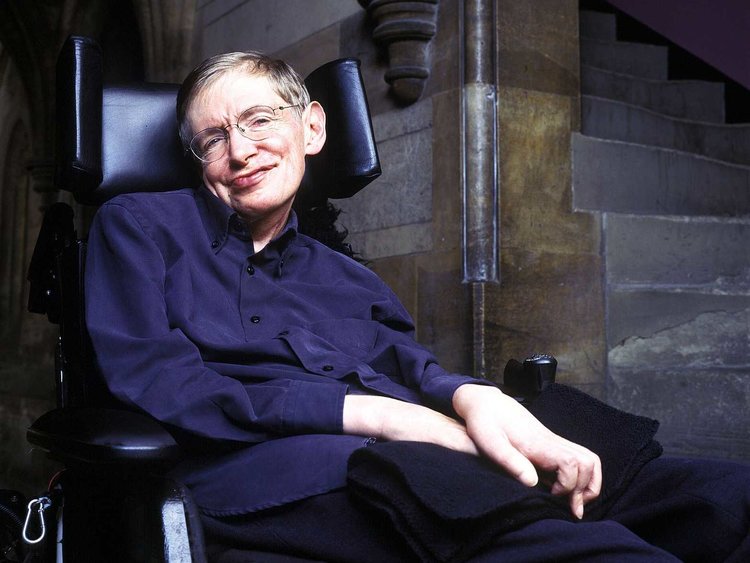A Brilliant Mind: Commemorating Stephen Hawking
Mar 21, 2018
At first, March 14 seemed like any other day. Besides being “Pi day”, it was another day of work and dealing with the struggles of the daily life. This was until the world found out it had lost one of the most unique and astonishing scientists in history, Stephen Hawking. His death proved to not only be a loss for his family, but for his millions of fans, and more importantly, for the intellectual world of science.
Hawking’s death was announced by the University of Cambridge. He had died peacefully at the age of 76 in his home in Cambridge, England, where had spent most of his lifetime.
Diagnosed with amyotrophic lateral sclerosis (ALS) at the age of 21, it was expected that Hawking would only live for two more years, as he would be gradually losing control of his muscles. By the age of 43, he had lost his voice; in order to speak and write, he used a computer crafted by Intel that detected his cheek movement to select letters on the keyboard, which in turn, would say what he typed.
Even with his disease, Hawking lived life to its fullest. He studied at the University of Oxford, majoring in physics, and the University of Oxford, where he researched cosmology.. He married twice and had three children.
Above all, Hawking dedicated his life to science. He spent the rest of his life doing research and teaching at Cambridge, holding the honorable position of the Lucasian Professor of Mathematics. Throughout his learning and teaching career, he made groundbreaking discoveries, which he explained in his various books. His book “A Brief History of Time” describes his beliefs on how the universe was created and describes stars, planets, time and black holes — why things are the way they are and what created them. His book sold over ten million copies around the world and was translated into more than 40 languages, an amazing feat for an author.
Furthermore, in 1947, Hawking made yet another incredible discovery. Using the quantum theory of gravity, he found out that black holes can evaporate if not given enough mass to replace its energy loss.
Along with making countless paramount discoveries, Stephen Hawking is celebrated for his cameos on many well-known shows such as The Simpsons, The Big Bang Theory and Star Trek: The Next Generation, among others. Likewise, a movie, called “The Theory of Everything,” was dedicated to his life during his marriage with first wife Jane Wilde. It explores and tells the story of his younger years, his love for Jane Wilde, his scientific accomplishments and the discovery and diagnosis of his ALS.
Even in a wheelchair, Hawking fully reached his mental capacities, taking everyone’s breath away and leaving the world open-mouthed. Regardless of his physical conditions, he pursued a happy and normal life, surrounded himself with family and contributed to the world. Hawking rests in the cosmos and in the hearts of those he inspired around the world. May he rest in peace.





















